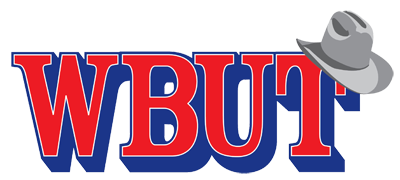The higher prices drew criticism from lawmakers, including local State Representative Brian Ellis of Butler.
Ellis- along with Rep. Mike Reese who represents Westmoreland and Somerset counties- penned an op-ed titled ‘450 Reasons Why Pennsylvania Should Not Sell Booze.’ (Referencing the pending increases for up to 450 liquor and wine products).
In the piece, the lawmakers urge the Pennsylvania legislature to get out of the alcohol business to encourage competition and lower prices.
It reads in part:
“This editorial is not going to be about expanding consumer choice.
Or about adults being able to purchase a bottle of spirits or even a six-pack of beer while doing their grocery shopping.
These are worthwhile points when considering state government’s monopoly on liquor sales. But this editorial is about the jacking up of liquor prices by the Pennsylvania Liquor Control Board (PLCB).
As many as 450 bottles of wine and spirits will be priced $1 higher by the end of August, according to a letter authored by the board and sent to suppliers. It suggests that wholesalers adjust their prices but falls way short of promising to lower or even freeze retail costs, if wholesalers comply.
Retailers and wholesalers should negotiate with each other. After all, that is only a small part of the production and supply chain that makes up America’s consumer market on just about every product we purchase.
This was the rationale behind a portion of Act 39 of 2016, which erased a 30 percent markup requirement in Pennsylvania’s liquor laws. The PLCB, which sought the change, argued that the required markup prevented the board from leveraging purchasing power to negotiate cheaper prices paid by them to then lower consumer costs.
What the board left out of its argument was that their go-to negotiation tactic was to announce that they will simply raise prices on 450 of the best-selling bottles but may consider otherwise if vendors go along to get along.
But if vendors play hardball, and it appears that many of them are, consumers will pay the inflated costs.
Regarding any other commodity, when shop owners and their suppliers negotiate with each other, it is generally to the consumer’s advantage. But that is because business owners know how high they can raise their prices before their customers will shop elsewhere. Wholesalers know that if their prices are not competitive, they’ll lose shelf space at that store.
But where are wine and spirits consumers to shop when only one retailer has a monopoly on every bottle sold in Pennsylvania?
Suddenly, 450 reasons why Pennsylvania should not be in the booze business turns to just one — the lack of competition. And make no mistake, competition is the strongest factor in keeping prices in check. Furthermore, when that one retailer who is protected by an archaic set of laws attempts to leverage a better price, they’re not negotiating – they’re extorting.
The Legislature has made historic attempts to divest Harrisburg from the liquor business. One of those attempts even made it to Gov. Tom Wolf’s desk in 2015 but was soon vetoed. This left like-minded House members, working on behalf of the majority of Pennsylvania residents who agree, to chip away at the PLCB’s monopoly.”
Two bills have passed the House and are now waiting for Senate approval.
The first proposes that businesses who hold a restaurant liquor license- including some grocery stores- should be able to sell up to three bottles of spirits per transition. The second would allow beer distributors to expand their current license and sell wine and spirits.
Ellis and Reese say the benefits of these bills are two-fold. According to the lawmakers, it would make the products more accessible and give competition to the state liquor control board.




